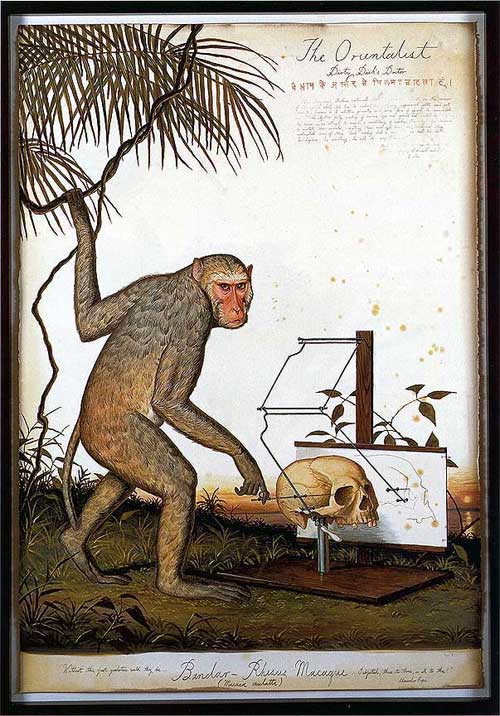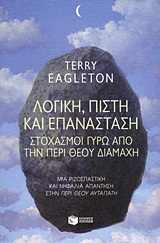και:(απο
Μαρξιστής κατά αθεϊσµού
Ο βρετανός λογοτεχνικός κριτικός και θεωρητικός του πολιτισµού Τέρι
Ιγκλετον υπερασπίζεται τη χριστιανική πίστη απέναντι στους νεοαθεϊστές
ΔΗΜΟΣΙΕΥΣΗ: 18/12/2011, 05:45
Καρδινάλιοι στην Καπέλα Σιξτίνα του Βατικανού. «Η εκδοχή του Ευαγγελίου
που πρόσφερε η Β' Σύνοδος του Βατικανού διαθέτει ανθρώπινο και πολιτικό
βάρος» γράφει ο Τέρι Ιγκλετον
emailεκτύπωση
«Σε µια εποχή που η πολιτική Αριστερά βρίσκεται σε δεινή ανάγκη για
καλές ιδέες, ο λόγος της θρησκείας θα µπορούσε να προσφέρει πολύτιµες
εναισθητικές γνώσεις για την ανθρώπινη χειραφέτηση» υποστηρίζει ο
κριτικός και θεωρητικός του πολιτισµού Τέρι Ιγκλετον. Βρετανός της
εργατικής τάξης ο οποίος ανατράφηκε ως κοινός ρωµαιοκαθολικός ιρλανδικής
καταγωγής, µε το βιβλίο του Λογική, πίστη και επανάσταση εµφανίζεται ως
αυτόκλητος υπερασπιστής της θρησκευτικής πίστης, εν προκειµένω της
χριστιανικής, απέναντι στη νέα σχολή ενός µανικού αθεϊσµού, που
εντοπίζεται στα πρόσωπα και στα κείµενα του βιολόγου Ρίτσαρντ Ντόκινς
και του δηµοσιογράφου Κρίστοφερ Χίτσενς – του διδύµου «Ντίτσκινς», όπως
τους αποκαλεί χάριν συντοµίας.
Στη µετανεωτερική εποχή η θρησκεία βρίσκεται παντού σε άνοδο, το
ενδιαφέρον όµως είναι ότι ξαναγίνεται δηµόσια και συλλογική και τείνει
συχνά να πάρει πολιτική µορφή – φαίνεται πως είναι πάλι έτοιµη να
ξεσηκώσει και να σκοτώσει. Κοσµικοί διανοούµενοι τύπου Ντίτσκινς
ανασκουµπώθηκαν για να πολεµήσουν αυτό το σκοτεινό, ανορθολογικό πρόσωπο
της θρησκείας.
Ο Ιγκλετον δεν αρνείται ότι η θρησκεία έχει υπάρξει µια «βρωµερή ιστορία
µισαλλοδοξίας, δεισιδαιµονίας, ευσεβών πόθων και καταπιεστικής
ιδεολογίας» και ότι ο χριστιανισµός έχει προδώσει τις επαναστατικές του
καταβολές περνώντας από το πλευρό των απόκληρων στο πλευρό ψευδόµενων
πολιτικών, διεφθαρµένων τραπεζιτών και φανατικών νεοσυντηρητικών. Εκείνο
όµως που πυροδοτεί την πολεµική τού αταλάντευτου µαρξιστή Ιγκλετον
είναι το γεγονός ότι οι πολέµιοι του θρησκευτικού φονταµενταλισµού δεν
ασκούν καµία κριτική στον παγκόσµιο καπιταλισµό, ο οποίος δηµιουργεί τα
αισθήµατα άγχους και ταπείνωσης που τρέφουν τον φονταµενταλισµό. Πολύ
βολικά, οι κληρονόµοι του φιλελευθερισµού και του ∆ιαφωτισµού ξεχνούν
ότι έχουν επίσης προδώσει τις θεωρητικές τους διακηρύξεις, όπως
αποδεικνύουν η βίαιη υπεξαίρεση της ελευθερίας και της δηµοκρατίας στο
εξωτερικό, ο ρατσισµός, η αποικιοκρατία, οι ιµπεριαλιστικοί πόλεµοι, η
Χιροσίµα, το απαρτχάιντ, η υποταγή στους σκοπούς του εµπορικού κέρδους.
Επιστρατεύοντας στο οπλοστάσιό του θεολόγους, πολιτικούς επιστήµονες,
ιστορικούς, φιλοσόφους και λογοτέχνες, από τον Θωµά τον Ακινάτη ως τον
Μαρξ, τον Φρόιντ, τον Λακάν, τον Σλάβοϊ Ζίζεκ, τον Τσαρλς Τέιλορ, τον
Αλέν Μπαντιού, τον Μίλτον και τον Τόµας Μαν, ο Ιγκλετον τονίζει ότι οι
σχέσεις µεταξύ γνώσης και πίστης είναι περίπλοκες, αλλά πρόκειται για
δύο διαφορετικά πράγµατα τα οποία δεν παραµερίζουν το ένα το άλλο. Η
φανατική θρησκευτική πίστη της µετανεωτερικής εποχής άνθησε ακριβώς
επειδή η λογική έγινε υπερβολικά κυριαρχική και εργαλειακή, µε
αποτέλεσµα να µην µπορεί να ευδοκιµήσει στο έδαφός της ένα έλλογο είδος
πίστης. Αυτός όµως δεν είναι λόγος για να αρνηθούµε την πίστη εξ
ολοκλήρου.
Το όραµα του φιλελεύθερου ανθρωπισµού για ελεύθερη και ευτυχή ανάπτυξη
της ανθρωπότητας είναι εφικτό, καταλήγει ο Ιγκλετον, µόνο µέσω της
αντιµετώπισης του χειρότερου εαυτού µας µέσα από µια διαδικασία
αυτοαλλοτρίωσης και ριζικής αναδηµιουργίας, µια διαδικασία, όπως την
αποκαλεί χαρακτηριστικά, «τραγικού ανθρωπισµού». Η θρησκεία, εκτιµά ο
βρετανός θεωρητικός, θέτει ερωτήµατα για ζωτικά ζητήµατα, για τον
θάνατο, τον πόνο, την αγάπη, την αυτοαλλοτρίωση, για τα οποία η σηµερινή
κοινωνία και η πολιτική σιωπούν και ο Ιγκλετον αποφασίζει εδώ να
κηρύξει το τέλος σε αυτή την «πολιτικά
Αναρτήθηκε από
Left Liberal Synthesis
στις
8:24 π.μ.
Συνέντευξη Terry Eagleton για το "Λογική,Πίστη,Επανάσταση"
Συνέντευξη Terry Eagleton για το "Λογική,Πίστη,Επανάσταση"
Αρχική Δημοσίευση :voidmanufacturing.wordpress.com
Literary critic Terry Eagleton discusses his new book,
Reason, Faith, and Revolution: Reflections on the God Debate,
which argues that “new atheists” like Richard Dawkins and Christopher
Hitchens “buy their rejection of religion on the cheap.” He believes
that, in these controversies, politics has been an unacknowledged
elephant in the room.
Nathan Schneider: Rather than focusing on “believers” or
“atheists,” which are typically the categories that we hear about in the
new atheist debates, you write about “a version of the Christian gospel
relevant to radicals and humanists.” Who are these people? Why do you
choose to address them?
Terry Eagleton: I wanted to move the arguments beyond
the usual, rather narrow circuits in order to bring out the political
implications of these arguments about God, which hasn’t been done
enough. We need to put these arguments in a much wider context. To
that extent, in my view, radicals and humanists certainly should be in
on the arguments, regardless of what they think about God. The
arguments aren’t just about God or just about religion.
NS: Are you urging people to go to church, or to read the Bible,
or simply to acknowledge the historical connections between, say,
Marxism and Christianity?
TE: I’m certainly not urging them to go to church. I’m
urging them, I suppose, to read the Bible because it’s very relevant to
radical political concerns. In many ways, I agree with someone
like Christopher Hitchens that most religion is fairly hideous and
purely ideological. But I think that Hitchens and Richard Dawkins are
gravely one-sided about the issue. There are other potentials in the
gospel and in the Christian tradition which are, or should be, of great
interest to radicals, and radicals haven’t sufficiently recognized
that. I’m not trying to convert anybody, but I am trying to show them
that there is something here which is in a certain interpretation far
more radical than most of the mainstream political discourses that we
hear at the moment.
 NS: You’re a literary scholar, and you’re talking about
religion. Is religion literature? Are you proposing that religion
become a resource for politics to draw from in the same way as any other
literary canon might be?
TE:
NS: You’re a literary scholar, and you’re talking about
religion. Is religion literature? Are you proposing that religion
become a resource for politics to draw from in the same way as any other
literary canon might be?
TE: No, not at all. I think the whole movement to see
religion as literature is a way of diffusing its radical content. It’s
actually a way of evading certain rather unpleasant realities that it
insists on confronting us with. One of the things that happened in the
19th century was that culture — literary and other kinds of culture —
tried to stand in for religion, and there was a lot of talk about
religion as poetry and religion as myth. That was an attempt to shy
away from some of the more uncomfortable challenges of religion when
taken rather more seriously.
NS: And those are the political challenges?
TE: Largely. Or, if you like, the ethical-political.
They were forgotten, or sidelined, and Christianity in particular became
a piece of poetry or a piece of mythology. There’s a lot of poetry and
mythology in the Bible, to be sure, but it interacts with other kinds
of elements, and that’s what I was stressing.
NS: Do you think that these traditions need to be radically
reinterpreted for the modern, secular world? Thomas Aquinas is
mentioned in your book, but so are — perhaps even more — Karl Marx and
Sigmund Freud. Is the religion you’re defending closer to that of the
medieval scholastics or to these more recent figures?
TE: I think that the Christian gospel always stands in
need of contemporary reinterpretation. Theologians have to determine
what kind of discourse, what contemporary way of talking, can best
articulate its particular concerns. There should be controversy and
debate. While Marx and Freud and others are relevant to the
contemporary interpretation of Christianity, that doesn’t mean one
rejects tradition and simply concentrates on the present. The present
is made out of tradition and out of history. What I’m offering in my
book is what I take to be — although it’s couched very often in terms of
Marx or Freud or radicalism in general — a fairly traditional
interpretation of scripture.
NS: Though of course the Christianity you present doesn’t sound
like a lot of the Christianity one hears in the public sphere,
especially in the United States.
TE: I think partly that’s because a lot the authentic
meanings of the New Testament have become ideologized or mythologized
away. Religion has become a very comfortable ideology for a
dollar-worshipping culture. The scandal of the New Testament — the fact
that it backs what America calls the losers, that it thinks the
dispossessed will inherit the kingdom of God before the respectable
bourgeois — all of that has been replaced, particularly in the States,
by an idolatrous version. I’m presently at a university campus where we
proudly proclaim the slogan “God, Country, and Notre Dame.” I think
they have to be told, and indeed I have told them, that God actually
takes little interest in countries. Yahweh is presented in the Jewish
Bible as stateless and nationless. He can’t be used as a totem or
fetish in that way. He slips out of your grasp if you try to do so.
His concern is with universal humanity, not with one particular section
of it. Such ideologies make it very hard to get a traditional version
of Christianity across.
NS: There are so many competing claims for supernatural
revelation; some people say they adjudicate truth by the Bible, or by
papal authority. How do you know one reliable supernatural tradition
from another?
TE: Well, you have to argue about it on the basis of
reason, and evidence, and analysis, and historical research. In that
sense, theology is like any other intellectual discipline. You don’t
know intuitively, and you certainly can’t claim to know dogmatically.
You can’t simply, in a sectarian way, assert one tradition over
another. I don’t think there’s any one template, any one set of
guidelines, which will magically identity the correct view. Theology,
like any other intellectual discipline, is a potentially endless process
of argument. But that’s not to say that anything goes.
NS: One thing that stood out to me was your reassertion of
liberation theology, which, for instance, the current pope repudiated
when he was Prefect of the Congregation for the Doctrine of the Faith.
He was concerned that hope for a worldly liberation through revolution
would become a substitute for spiritual liberation through Christ.
TE: It would certainly be a big mistake to identify any
particular human society with the kingdom of God. If any liberation
theology were doing that, then it would be properly rebuked. I don’t
think that’s why the pope is averse to it; he’s averse to it anyway
because of its politics. It would be a grave mistake to think that
we’re talking about the difference between a material revolution and a
spiritual one. That would be the kind of gnosticism, or dualism, which
Judaism and Christianity challenge. A socialist revolution is quite as
spiritual as the fight for the kingdom of God is material.
 NS: Do you consider yourself a Christian per se, or a person who happens to like and be inspired by Christianity?
TE:
NS: Do you consider yourself a Christian per se, or a person who happens to like and be inspired by Christianity?
TE: I don’t think the pope will consider me a
Christian. I was brought up, of course, a Catholic. I suppose it was
fortunate that around the time of the Vatican Council I encountered,
just when I might have rejected a lot of it, a very challenging version
of Christianity. I felt there was no need to reject it on political and
intellectual grounds, because it was highly relevant and sophisticated
and engaging. In a sense one doesn’t have much choice about these
things. What I find is that heritage very deeply influences my work,
and probably has more so over the last few years. Quite what my
relation to it now is is hard to say. But that’s just a historical
dilemma, a matter of how to understand oneself historically.
NS: When you talk about it being beyond choice — I’ve been
interested to see how Richard Dawkins calls himself a “post-Christian
atheist” and talks about celebrating Christmas.
TE: I think, actually, he’s a pre-Christian atheist,
because he never understood what Christianity is about in the first
place! That would be rather like Madonna calling herself post-Marxist.
You’d have to read him first to be post-him. As I’ve said before, I
think that Dawkins in particular makes such crass mistakes about the
kind of claims that Christianity is making. A lot of the time, he’s
either banging at an open door or he’s shooting at a straw target.
NS: You say he emphasizes a “propositional” account of religious
faith above a “performative” one. But how far can one go believing in
God performatively, through political acts, before it becomes a
proposition?
TE: All performatives imply propositions. There’s no
point in my operating a performative like, say, promising, or cursing,
unless I have certain beliefs about the nature of reality: that there is
indeed such an institution as promising, that I am able to perform it,
and so on. The performative and the propositional work into each
other. But it is a typically positivist kind of mistake to begin with
the propositional, just as it would be for someone trying to analyze a
literary text, which is basically a performance. Somebody who didn’t
grasp that would be making a root-and-branch mistake about the kind of
thing being confronted. These new atheists, and, indeed, the great
majority of believers, have been conned rather falsely into a positivist
or dogmatic theology, into believing that religion consists in signing
on for a set of propositions.
NS: Are there political reasons behind this mistake?
TE: Dawkins and I were recently asked to write articles for the front page of the
Wall Street Journal,
if you can believe it. I don’t know what the rationale behind this is,
or even if it will come off. I said that I would do so, provided that
my last sentence would be, “Jesus Christ would never have been given a
column in the
Wall Street Journal.” It is indicative of the
strangeness and intensity of this debate that it crops up in the most
peculiar places. It crops up at the very temples of Mammon. But, you
see, I think that’s because these people really do think it’s just about
a set of ideas, of propositions. That’s a pretty comfortable debate.
But the point I try to make when I enter on these forums is that it’s
not just that. It has a strong political subtext.
NS: Back to issues of faith and reason — your position reminds me of Stephen Jay Gould’s model of “non-overlapping magisteria.”
Gould himself was not a believer, though he wrote about religion and
science, and sometimes he has been accused of having a position that is
only possible if you’re not really taking belief seriously.
TE: I think that Gould was right in that particular
position. What is interesting is why it makes people like Dawkins so
nervous. They misinterpret that position to mean that theology doesn’t
have to conform to the rules and demands of reason. Then theologians
can say anything they like. They don’t have to produce evidence, and
they don’t have to engage in reasonable argument. They’re now released
from the tenets of science. Traditionally, this is the Christian heresy
known as fideism. But all kinds of rationalities, theology included,
have been non-scientific for a very long time and yet still have to
conform to the procedures of reason. The new atheists think this
because they falsely identify the rules of reason with the rules of
scientific reason. Therefore if something is outside the purview of
science, it follows for them that it is outside the purview of reason
itself. But that’s a false way of arguing. Dawkins won’t entertain
either the idea that faith must engage reason or that the very idea of
what rationality is is to be debated.
NS: The atheists have promoted themselves by wearing big red
“A”s on their t-shirts and calling themselves “brights.” Is there a
counter-movement you’d like to begin? What would you put on the
t-shirt?
TE: Rather than simply man the barricades on either
side, I’d like to step back and see what’s happening here. That sort of
gesture has to be understood in terms of an American society in which a
relatively small coterie of self-consciously enlightened atheists or
agnostics are indeed confronted with a massively ideologized religion,
which in many respects is very ugly indeed. What I think is wrong, and
what I think is rationalistic, is to cast the argument in terms of
intelligence. It may be that a lot of people who believe that they’re
going to be rapt up into heaven are fairly dim creatures. On the other
hand, Europe is full of dim agnostics. It is a rationalist error to
think that your opponents are simply stupid. That betrays what’s wrong
with this particular kind of new atheism: it casts the arguments largely
in intellectual and propositional terms and doesn’t see that a great
deal else is involved here.
NS: Do you think that it’s an accident that the most successful
of the new atheists, Richard Dawkins and Christopher Hitchens, come with
English accents?
TE: No. England is a very agnostic society. It looks
with amazement on the behavior of many Americans as far as religion
goes. America, of course, is in all kinds of ways out of line. It’s
still an enormously metaphysical and religious society, while the
typical advanced capitalist culture is pretty skeptical. Advanced
capitalist societies do not normally call upon their citizens to believe
very much, as long as they roll out of bed and do their work. They are
pretty post-metaphysical. In a sense, Britain is a post-metaphysical
society. A very small minority of people go to church. Religion is not
part of a public and political discourse in anything like the way it is
in the States. The States is peculiar because it is, on the one hand,
the most rampantly capitalist society in history and, on the other,
deeply, deeply metaphysical. Really, those two things are inherently at
odds. Markets are relativizing, pragmatizing, and secularizing. But
to prop them up, to defend them, and to legitimate them, you may need
some much more absolute values. That may be why there are a lot of
psycho-spiritual stockbrokers around.

 Terry Eagleton, Λογική, πίστη και επανάσταση: Στοχασμοί γύρω από την περί Θεού διαμάχη, μετάφραση Πέτρος Γεωργίου,εκδ. Πατάκη, Αθήνα 2011,
Terry Eagleton, Λογική, πίστη και επανάσταση: Στοχασμοί γύρω από την περί Θεού διαμάχη, μετάφραση Πέτρος Γεωργίου,εκδ. Πατάκη, Αθήνα 2011,


2 σχόλια:
Θερμές ευχαριστίες για την αναδημοσίευση. Καλές γιορτές.
Καλες γιορτες
Δημοσίευση σχολίου